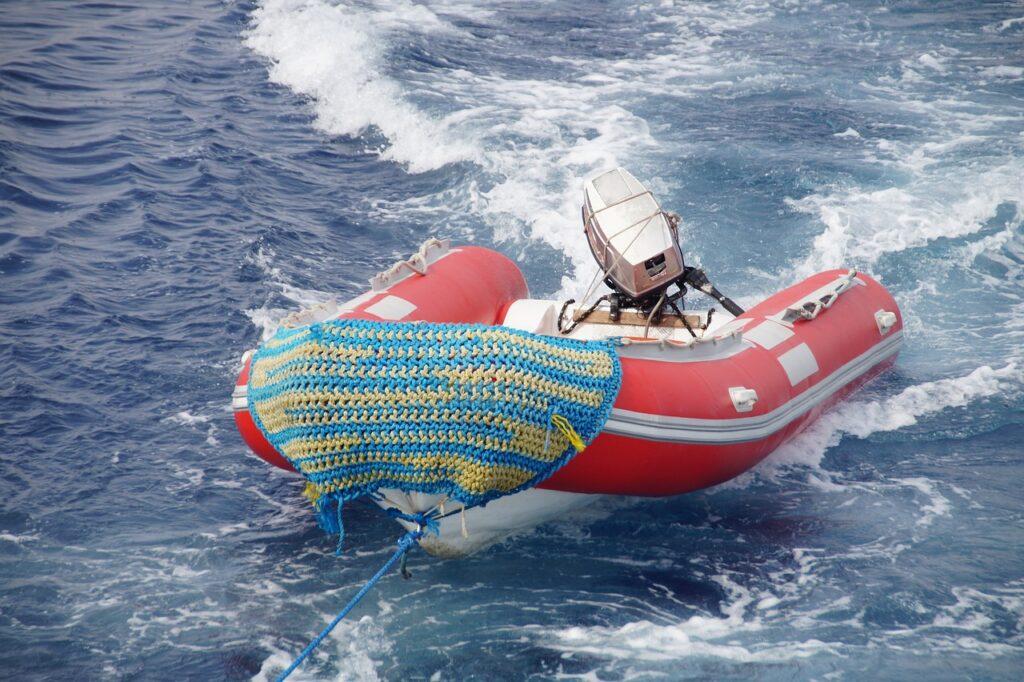What Size Motor for a 20 Foot Pontoon Boat
Pontoon boats are an incredibly popular option for people looking to enjoy the water. Their stable design and spacious interior make them an ideal choice for a variety of activities, from fishing to cruising and parties. But, when it comes to powering a pontoon boat, one of the most important considerations is selecting the right size motor.
Key Takeaways:
- For a 20-foot pontoon boat, a motor that balances power and efficiency is ideal. Typically, this means a motor ranging from 50 to 115 horsepower (HP). A motor within this range should provide sufficient power for most recreational activities, including cruising, fishing, and light towing, while also maintaining good fuel efficiency.
- The right motor size also depends on how you plan to use the boat. If you’re primarily using it for leisurely cruises or fishing with a few people on board, a motor at the lower end of the power spectrum (around 50–70 HP) may be adequate. However, if you plan to engage in activities that require more power, such as towing water skiers or carrying more passengers, you might need a motor towards the higher end (90–115 HP).
- The weight of the boat, along with its maximum capacity, should also influence the motor size. Heavier boats or those frequently loaded near their maximum capacity will benefit from a more powerful motor. A motor with higher horsepower will ensure that the boat maintains good performance and handling even under heavier loads.
Determining what size motor is best for a 20 foot pontoon boat is no easy task, as there are a variety of factors to consider, from the size and weight of the boat to the type of activities it will be used for. In this article, we’ll discuss the different aspects of selecting the right size motor for a 20 foot pontoon boat.
What Size Motor for a 20 Foot Pontoon Boat
The size of motor required for a 20 foot pontoon boat depends on the intended use of the boat. For recreational use, a 40–50 horsepower motor would be sufficient. If the boat is going to be used for watersports such as skiing or tubing, a motor of 75–90 horsepower would be more suitable. If the boat is expected to carry a heavy load with multiple passengers, a motor of 115–150 horsepower would be recommended.
- Up to 40 HP for a 2‑stroke engine
- Up to 50 HP for a 4‑stroke engine
- 25 HP for a jet drive motor
- Up to 150 HP for an outboard motor
- Up to 115 HP for an inboard motor
- Up to 20 HP for an electric motor
It is also important to consider the type of motor. For pontoon boats, an outboard motor is the most common choice. The pontoon boat should also be matched with the right propeller to ensure optimal performance. Power trim and tilt system can be helpful for adjusting the motor height in order to achieve the right balance between power and fuel economy.
You can also check this video we have found on Youtube:
Types of Motors
When it comes to pontoon boats, there are two main types of motors to choose from: outboard and inboard. Outboard motors are typically used on smaller boats and are mounted on the outside of the boat, while inboard motors are mounted inside the boat and are more powerful.
Outboard Motor: Outboard motors are a popular choice for pontoon boats due to their versatility and ease of use. They are mounted on the transom of the boat and offer good maneuverability. Depending on the size and weight of your pontoon boat, you can choose from various horsepower options to provide the necessary power for cruising and water sports.
Stern Drive Motor: Stern drive motors, also known as inboard/outboard motors, combine the features of an inboard and an outboard motor. They are mounted inside the hull of the boat, with the lower unit extending through the transom. Stern drive motors provide good performance and handling, making them suitable for larger pontoon boats.
Electric Motor: Electric motors are a quieter and more environmentally friendly option for smaller pontoon boats. They are powered by batteries and offer a silent and smooth boating experience. Electric motors are ideal for calm waters and shorter trips, as their battery life may limit the overall range and speed.
Jet Drive Motor: Jet drive motors use water propulsion instead of a traditional propeller. They are commonly used in shallower waters where a propeller-driven motor may be prone to damage. Jet drive motors provide good maneuverability and are suitable for pontoon boats that navigate rivers, lakes, and other shallow water bodies.
Outboard motors are also more affordable and easier to maintain, while inboard motors are more expensive but offer more power.
Outboard Motors
- Types: They come in two types: two-stroke and four-stroke. Two-stroke motors are less expensive and require less maintenance, but they’re also less efficient and more polluting. Four-stroke motors are more expensive but offer more power and are more efficient and less polluting.
- Size: The size of an outboard motor is determined by its horsepower. For a 20 foot pontoon boat, a motor in the range of 25–50 horsepower is recommended.
Inboard Motors
- Types: Inboard motors come in two types: gasoline and diesel. Gasoline engines are more affordable and easier to maintain, while diesel engines offer more power and are more fuel efficient.
- Size: The size of an inboard motor is determined by its horsepower. For a 20 foot pontoon boat, a motor in the range of 40–100 horsepower is recommended.
Factors to Consider When Choosing a Motor

When selecting a motor for a 20 foot pontoon boat, it is important to consider the weight of the boat and the type of motor you wish to use. You will need to ensure the motor is powerful enough to move the boat through the water, but not so powerful that it will be too expensive or difficult to maintain. You should consider the size of the motor you need, as well as the fuel efficiency and emissions rating of the motor. Consider the type of terrain and water conditions you’ll be navigating, as this will help you determine the best type of motor for your specific needs.
Size of Boat and Weight
The size of the pontoon boat should be taken into account when selecting a motor, as larger boats require more power to move efficiently. The weight of the boat also plays an important role in determining the size of the motor. Heavier boats require more power to move, so a larger motor may be necessary.
Types of Activities
The type of activities the pontoon boat will be used for will also influence the size of the motor. A pontoon boat used for cruising or fishing will require less power than one used for watersports or towing.
Fuel Efficiency
Fuel efficiency should also be taken into consideration when selecting a motor. Outboard motors are typically more fuel efficient than inboard motors, and four-stroke motors are more efficient than two-stroke motors
Seeking Professional Advice
When selecting a motor for a 20 foot pontoon boat, it’s always a good idea to seek professional advice. Boat dealers and marine mechanics are often a great source of information and can help determine which motor is best for the specific needs of the boat owner. Many boat dealers and marine mechanics offer services such as motor installation and maintenance, which can be invaluable for ensuring that the motor is running smoothly and efficiently.
What is a good size motor for a pontoon boat?

A good size motor for a pontoon boat depends on the size and weight of the boat, as well as the type of waters you usually navigate. Pontoon boat needs a motor with at least 50 horsepower for adequate performance in calm waters. However, if you plan to navigate larger bodies of water, or if your pontoon boat is larger or heavier than average, then you may need a motor with up to 150 horsepower or more.
If you plan to navigate in choppier or faster-moving waters, or if you plan to tow skiers or other water toys, then you should look for a motor with at least 200 horsepower. If your pontoon boat is larger than 25 feet, then you should look for a motor with at least 250 horsepower. Of course, the size of motor you choose also depends on how much power you want and how fast you want to go, so you may want to consider a motor with even more power.
Is 50 hp enough for pontoon?
50 horsepower is enough to power a pontoon boat, depending on the size of the boat and the planned activities. For example, a small pontoon boat may be fine with 50 horsepower, while a larger pontoon boat may require more power for activities such as skiing or tubing. Ultimately, the amount of horsepower needed for a pontoon boat will depend on how the boat will be used.
Is 40 hp enough for pontoon?
It depends on what size pontoon boat you are looking for. 40 hp is enough for a small pontoon boat that is 16 feet or shorter. However, if you are looking at a larger pontoon boat, such as 20 feet or longer, then you may want to consider a more powerful motor of 50 hp or higher.
Conclusion
Selecting the right size motor for a 20 foot pontoon boat is an important decision that should be made with careful consideration. The size of the boat and its weight, the type of activities it will be used for, and the fuel efficiency of the motor should all be taken into account when making a decision. Outboard motors are typically best for smaller boats, while inboard motors are more suitable for larger boats. Best motor for a 20 foot pontoon boat will depend on the needs and preferences of the boat owner.
What size motor should I choose for my 20-foot pontoon boat?
Choosing the right motor size for your 20-foot pontoon boat depends on several factors, including the boat’s weight, desired speed, and intended use. It is recommended to consult the boat manufacturer’s specifications or seek advice from a marine professional to determine the appropriate motor size. Generally, pontoon boats of this size may require motors ranging from 50 to 150 horsepower, but the specific needs of your boat may vary.
Can I use an outboard motor for my 20-foot pontoon boat?
Yes, outboard motors are a popular choice for pontoon boats, including 20-foot models. Outboard motors offer easy installation, maneuverability, and a wide range of horsepower options to match your boat’s needs. They are typically mounted on the transom of the boat and provide reliable performance for cruising, fishing, and recreational activities.
Are there any restrictions or regulations regarding motor size for a 20-foot pontoon boat?
Motor size restrictions and regulations may vary depending on the location and governing bodies overseeing boating activities. It is essential to familiarize yourself with local laws and regulations related to boat motor size, horsepower limitations, and any specific requirements for pontoon boats. Contacting the relevant boating authorities or consulting with a marine professional can help ensure compliance with applicable regulations and ensure a safe and legal boating experience.
